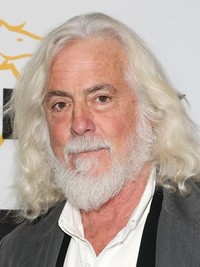Robert Richardson

Prior to becoming a regular collaborator with such prominent directors as Oliver Stone and Quentin Tarantino, cinematographer Robert Richardson served his apprenticeship shooting second unit on "Repo Man" (1984) while filming television documentaries for PBS and the BBC. His television work led Stone to hire him to shoot "Salvador" (1986) and "Platoon" (1986), both of which required a cinéma vérité style that only a documentary cinematographer could offer. From there, he worked almost exclusively for Stone, filming "Wall Street" (1987), "Born on the Fourth of July" (1989) and "The Doors" (1991), while occasionally branching out to shoot films like John Sayles' "Eight Men Out" (1988) and "City of Hope" (1991). But it was his stunning work using a multitude of stock and cameras to create a documentary feel for "JFK" (1991), which earned the cinematographer his first Academy Award. While he sharpened the hyperkinetic style of "JFK" in "Natural Born Killers" (1994), "Nixon" (1995) and "U-Turn" (1997), Richardson was in-demand by other top Hollywood directors like Tarantino and Martin Scorsese, both of whom tapped the director of photography for films like "Bringing Out the Dead" (1999), "Kill Bill, Vol. 1" (2003) and "Kill Bill, Vol. 2" (2004). Richardson earned Oscars two and three for his work with Scorsese on "The Aviator" (2004) and "Hugo" (2011). As he continued to earn acclaim for projects like Tarantino's "Django Unchained" (2012) and "Once Upon a Time In Hollywood" (2019), there was no doubt that Richardson was one of the finest cinematographers working in Hollywood.